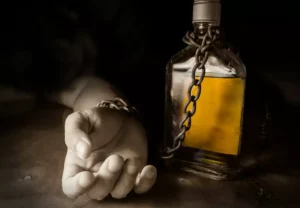
The truth is, who we are, how we think and how we behave is inextricably interwoven with other people and events. In other words, you didn’t get to where you are today all by yourself. Your tendency to be a victim or your tendency to be abusive did not just happen. You must continue to look for the causes and conditions that lead you to these unhealthy behavior patterns.
The Role of Shame and Guilt in Addiction Recovery

Understanding the role of shame and guilt in addiction recovery requires valuable information on how these emotions work. Shame keeps individuals stuck in cycles of addiction by eroding their sense of self-worth, https://ecosoberhouse.com/ pushing them towards further substance abuse to cope with negative feelings. Guilt can be useful in identifying harmful behavior patterns but becomes toxic when it prevents individuals from moving forward.
- He defines this is a “deep hatred of yourself” and a condition where you “don’t want to be the person you are.”
- Dwelling on the past will only keep you depressed and unableto enjoy your present life.
- How is your physical health, social network, intimate relationships, work roles, and finances.
- Recognize the courage and strength it takes to confront feelings of guilt and shame in recovery.
When healing, remember: Shame and guilt are not the voice of God

The role of shame and guilt in addiction recovery is critical, as it can be a significant obstacle to the person’s progress, impeding them from healing and making positive changes. Shame and guilt are common emotions that can hinder recovery, and self-forgiveness is an effective tool for overcoming these negative feelings. It’s important to acknowledge that alcohol and substance use disorders are health conditions that need treatment. When we admit our wrongdoings and take the steps to change ourselves for the better, we can let go of negative self-perceptions. Feelings of guilt and shame have no purpose in your new life, especially once you have completed Step Five. Instead of allowing residual feelings of shame or guilt to define you as a person, box them up and discard them.

Individual and Group Therapy in Easton PA
It can, however, feel very uncomfortable if family members have developed the habit of shielding their loved ones from reality. We simply ask the families to be honest with their loved one about how their behavior is affecting them and what the experience has been like. In my addiction recovery journey, I’ve come across various therapeutic approaches to dealing with the emotional burdens of shame and guilt. One of the most effective methods for me has been alternative therapies. In this segment, I explore different alternative therapies for healing shame and guilt. Research studies from reputable sources will back each of these methods.
How Do We Face Our Wrongs?
- Let’s learn more about shame vs guilt, why they are common feelings in recovery and strategies for overcoming them.
- Both emotions can be deeply ingrained in our psyche, often originating from past experiences, societal expectations, or cultural conditioning.
- This self-respect can, in turn, affect our self-esteem, self-confidence, and overall outlook on life.
- Experiencing a relapse can trigger intense feelings of guilt and shame for individuals in recovery.
They also learn how to tolerate distressing emotions without resorting to harmful behaviors. The focus of therapy is on helping clients build a life worth living, rather than fixating on past mistakes or shortcomings. Shame is an unpleasant emotion that arises when one sees themself as defective, dysfunctional, or dishonorable, whereas guilt is a terrible feeling brought on by one’s actions.
How Do Guilt and Shame Affect Overall Health?
- When you stop seeing yourself as your label, as your problem, as your addiction, the shame begins to fall away.
- Taking responsibility for the wrongs we have committed is a part of maturing and growing as a person.
- By developing greater awareness around these emotions through mindfulness practice, individuals are able to break free from these habitual patterns in a safe and controlled environment.
- Channel your energy into positive activities that promote personal growth and well-being.
A person feeling shame may not be able to recognize their positive qualities and may view themselves as flawed, dishonorable, or dysfunctional. Shame is an unhelpful emotion, especially if you experience it for a long time. If you see yourself guilt and shame in recovery as a bad person, it’s hard to see a way out of your situation or change your behavior. This makes you more likely to repeat bad behavior and more likely to harm yourself. It’s common for individuals in recovery to experience shame and guilt.
Accessing Additional Forms of Professional and Peer Support.
Being able to forgive removes the shame and feeling that you can move on. Forgiving ourselves or others and releasing that choking experience of guilt is crucial to overcoming a relapse or pushing through on your journey of recovery. It’s important to forgive others too, as when you do so, you let go and accept. It may not make things right or just, but it means you are willing to let mistakes that happen, happen and you don’t want to feel responsible for the things you can’t control. Your admittance of what you did to harm others is doubly powerful if it is accompanied by a heartfelt, sincere apology. One of the most frequent comments that I hear from those who were abused in childhood is that they wish the offender would admit what he or she did and apologize to them for it.


